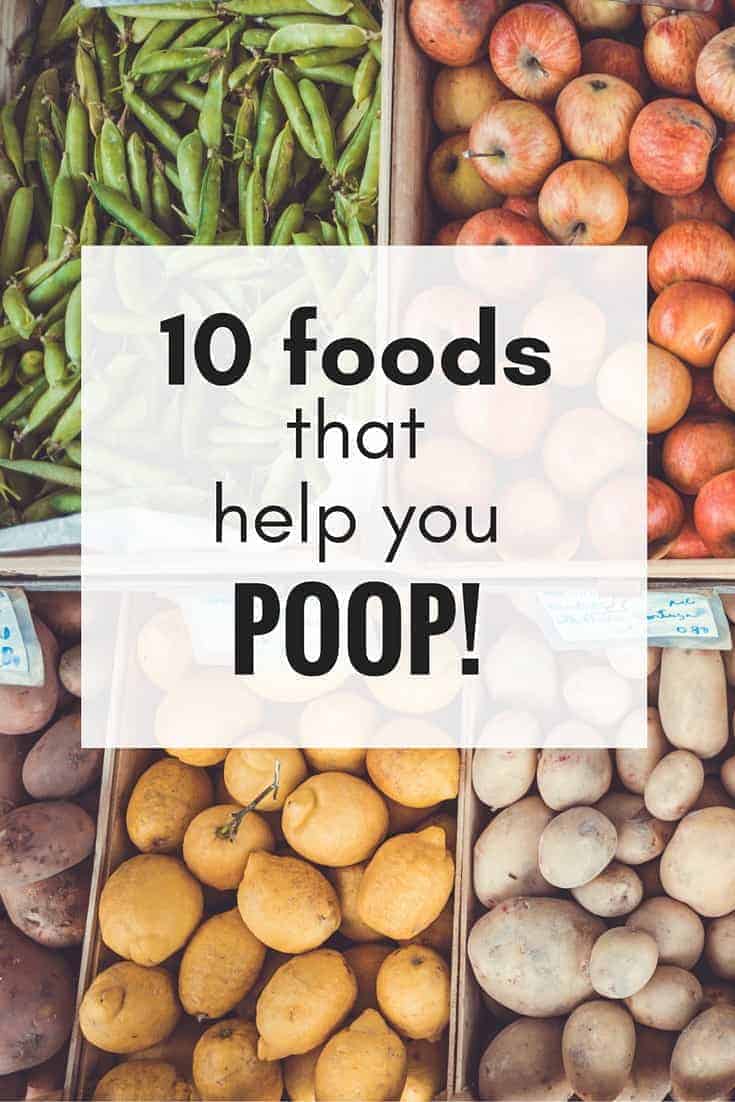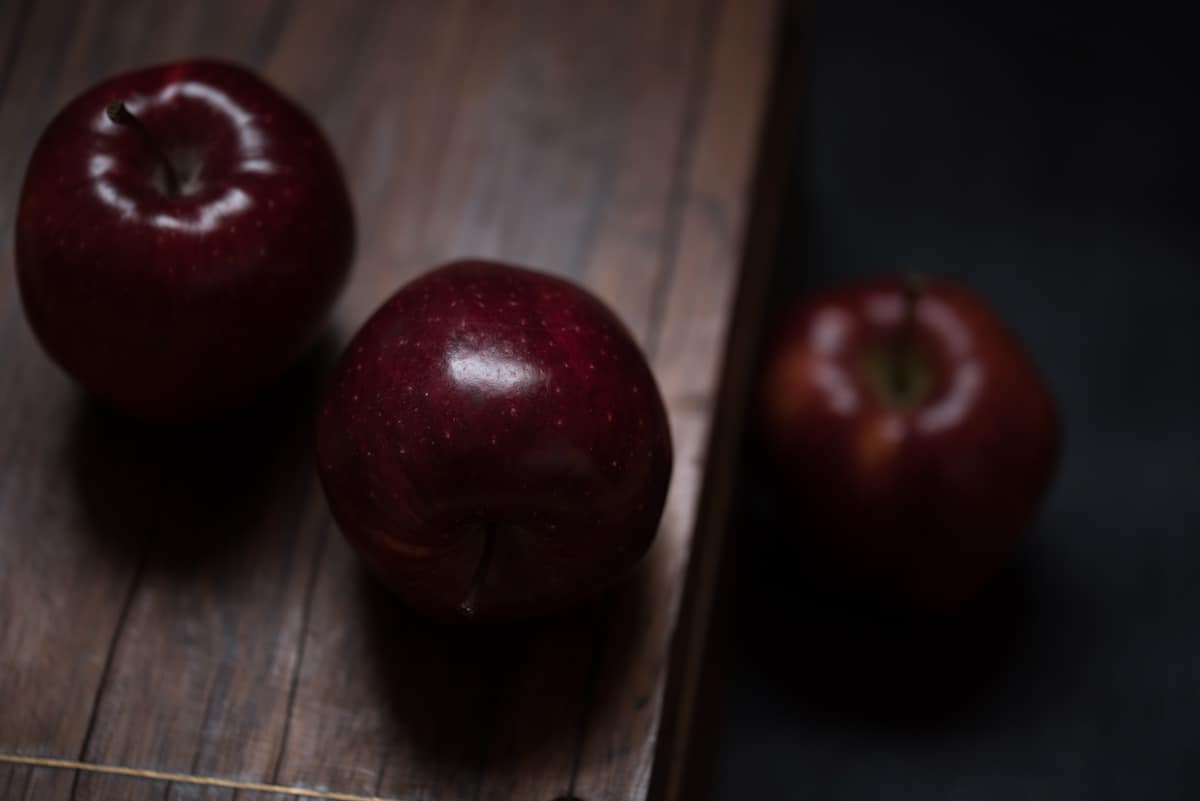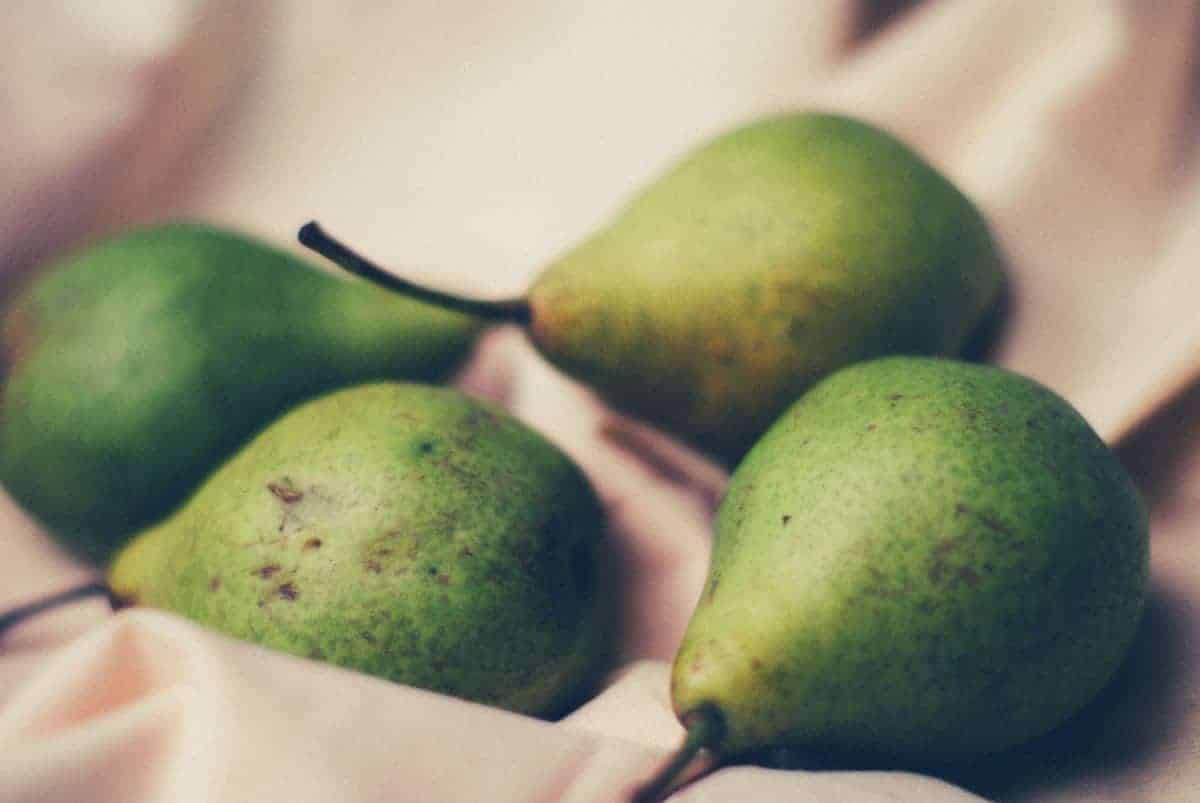
Everybody poops.
Not everybody poops well.
Between 5-20% of people suffer from constipation.
The bad news is: severe cases of constipation can’t be fixed with food. These cases will need some medical attention first. See your doctor or pharmacist to choose the best product for your situation.
Now, the good news! Your food choices can help solve both a mild case of constipation AND prevent constipation from coming back!
Do You Have a Pooping Problem?
There isn’t a precise prescription for how often a person should poop. The normal range is 3-14 times a week. If you only have a bowel movement every few days and feel fine otherwise (no bloating, straining on the toilet, or pellet-like poops) then you’re fine! But if you experience a drop in your normal regularity or have other symptoms, you may have constipation.
Here are my top ten food recommendations if your body is prone to getting constipated.
1. Flax Seeds
One cause of constipation is not having enough poop. Yup, you need to bulk up!
Think of it like this: if you have a full tube of toothpaste, you barely have to squeeze the tube to get some out. But when it’s getting empty, you really have to squeeze hard. That’s exactly what’s going on in your bowels. If you don’t have enough material for your intestines to squeeze, it will be hard to move your poop through.
Flax seeds (and other sources of insoluble fibre) help to increase fecal bulk.
2. Apples
One cause of constipation is low water content in the stool. In addition to fibre that bulks up the stool, apples contain a sugar alcohol called sorbitol. Sugar alcohols have an osmotic effect in the colon, meaning that it draws water into the colon.
Of course, drinking plenty of water is also necessary!

3. Prunes
These dried plums are infamous for their laxative ability, but researchers still haven’t pinpointed exactly what makes them so effective! It’s probably a combination of a few things.
High in fibre? Yup! Prunes have 6.1g of fibre per 100g. But this doesn’t fully account for the power of prunes. They’re still more effective than foods with higher fibre counts.
High in sorbitol? Yup! Prunes have 14.7g of sorbitol per 100g, which again produces an osmotic (water drawing) effect in the colon. But again, this doesn’t fully count for the laxative effect prunes have.
Prunes are also high in phenolic compounds such as chlorogenic and neochlorogenic acid. These chemicals may also aid in the digestive process.
These three nutrients combined make one powerful laxative! In fact, be careful not to eat too many prunes, as you might end up with the opposite problem.
4. Coffee
There are a couple of reasons coffee can be a good aid in preventing constipation.
- Coffee contains chlorogenic acid, a phytonutrient believed to have a mild laxative effect.
- Coffee is hot. Warm beverages tend to stimulate bowel contractions. In other words, coffee gets things moving!
Just beware… if you’re not a regular coffee drinker, the caffeine can act as a diuretic. This means, it can cause you to pee more and end up dehydrating you! Dehydration is a sure-fire way to get constipated!

5. Pears
Pears are in the same family as apples and, as such, contain the same laxative compounds: sorbitol, fibre, and even a little bit of chlorogenic acid! One large pear has 7g of fibre!

6. Lentils
Lentils are a mighty, mighty little food. What can’t they do? They help to lower cholesterol and blood pressure, prevent type two diabetes and improve glycemic control, and they’re a great vegan source of protein and iron.
Can you tell I’m a bit crazy for lentils??!
On top of all that, 1 cup of boiled lentils contain 9g of fibre! Try adding them to soup, pasta sauce, baking, smoothies, or pretty much any food! I’ve gone a little lentil loco over here. I’ve even been known to throw a few in my yogurt…
7. Psyllium
The food we know as psyllium is actually just the husks of the seeds from a plant called Plantago ovata. The husks are high in soluble fibre, which swells with water and then bulks up that stool!
Pysllium can be added to smoothies, oatmeal, or found in All-Bran products.
8. Yogurt with live active cultures
One theoretical cause of constipation is a change in the gut’s microbiota.
Quick lowdown on the gut microbiota: there are trillions of bacteria living in our gut. Some provide health benefits, while others can cause disease. Several factors can influence which type of microbiota fill our gut: the food we eat, whether we were born the usual way or via C-section, antibiotic use, etc.
With constipation it’s the classic story of the chicken and the egg. Observational studies show that people with constipation have lower counts of lactate producing bacteria and higher counts of methane producing bacteria. What scientists don’t know is whether the alteration to the microbiota causes the constipation or whether the constipation causes the microbiota to change!
What we do know is that a healthy gut microbiota can stimulate the bowels to contract and move stool along.
The research is still in early stages, and scientists don’t know for sure whether all probiotics might help. So which ones might?
- In supplement form, VSL #3 has shown promising results.
- In yogurt form, Activia has been shown to lower the time it takes to move stool along in the colon and reduce bloating.
- Another type of yogurt, Yoptimal, helps to increase stool frequency, especially in individuals suffering from mild constipation.

9. Dried Young Coconut
When a green coconut is picked off the tree, it’s called a young coconut. That sounds a bit more appealing than “unripe coconut,” doesn’t it? Banana producers could learn a thing or two about marketing. Wouldn’t you feel more youthful, just thinking about eating a young banana?
Anyways, the flesh of the young coconut is soft and almost jelly like. When a coconut is fully ripened, it’s much harder, like flaked coconut. Soft coconut doesn’t transport well, but it turns into a delicious snack if it’s lightly sweetened and dehydrated!
It’s so delicious, this is actually my new favourite snack!
Each 40g (1/4 cup) serving of dried young coconut contains 8-14g of fibre!
As a side note, some people swear by coconut oil for constipation relief. I have not been able to find any studies on this topic, so I can’t recommend it for constipation. My recommendations require scientific evidence! But since I couldn’t find any studies at all, that also means that I didn’t find any studies disproving its laxative effects.
10. Pumpkin Seeds
The secret nutrient in pumpkin seeds is the magnesium. Research has shown that people who don’t get enough magnesium struggle with constipation more often. And it’s not just preventative. Magnesium is so effective at drawing water into the colon that it is sometimes prescribed to solve cases of existing constipation.
One 1/4 cup serving of pumpkin seeds has 317mg of magnesium. For women that’s enough for an entire day! Pumpkin seeds are also a good source of fibre.
Want to know how you can add these foods into your diet?
Click here for a one-day meal plan that incorporates ALL 10 of these foods!
[share title=”Share This Article” facebook=”true” twitter=”true” google_plus=”true” linkedin=”true” pinterest=”true” reddit=”true” email=”true”]



Excellent information. I occasionally have trouble with constipation and try to drink lots of water well as bran cereal. We also like beans so that helps. Thanks for your help.
So glad you found the article helpful!
Thanks
And what is your knowledge about the keto diet pls?
Hi Kathy, a good topic for a blog post! For now, I will say I generally don’t recommend any sort of restrictive diet, (and this of course dependant on individual health needs) which keto would fall under. If you are interested in a healthy diet, please see this blog post:
Thanks for the information. I’ve been trying to eat better and lose a little weight. I’ve been trying to eliminate (at least for now) nearly all carbohydrates and practice a ketogenic way of eating.
What I’ve discovered in doing this is a great change in my bathroom habits. For years, since I was a teenager and I’m 55 now I’ve regularly eaten lots of bran cereal and therefore never had a problem with constipation.
Recently I’ve been trying to incorporate pumpkin seeds into my diet with the thought that the magnesium will help me get back to somewhat normal without having to add back in all those carbs but I’ve only been eating about 1/4 cup per day.
So, my question is this. I read last week that too many pumpkin seeds can cause severe constipation even impacted stools which kinda scared me. Which based on fiber and magnesium content seemed to me to be counterintuitive. Can you please shed some light on this for me and let me know if this is true and if so what amount would likely cause this effect.
Thank you!
Randy Brackett
[email protected]
Unless eaten to an EXTREME excess I don’t think there’s any evidence that one single food will cause constipation. Constipation is more the result of an overall diet. As for the magnesium, the form found in food is not the type that tends to cause loose stools.